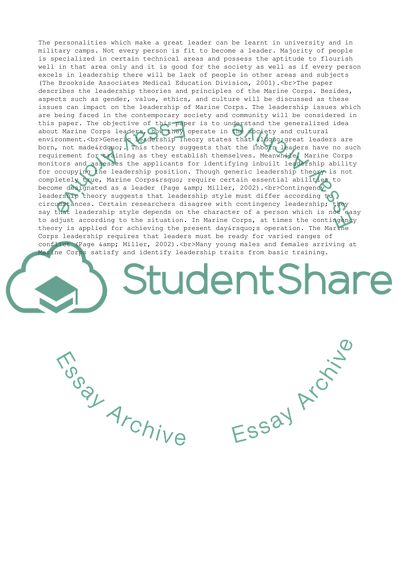Cite this document
(Leadership in the Marine Corps Research Paper Example | Topics and Well Written Essays - 2000 words, n.d.)
Leadership in the Marine Corps Research Paper Example | Topics and Well Written Essays - 2000 words. Retrieved from https://studentshare.org/management/1762460-leadership-in-the-marine-corps
Leadership in the Marine Corps Research Paper Example | Topics and Well Written Essays - 2000 words. Retrieved from https://studentshare.org/management/1762460-leadership-in-the-marine-corps
(Leadership in the Marine Corps Research Paper Example | Topics and Well Written Essays - 2000 Words)
Leadership in the Marine Corps Research Paper Example | Topics and Well Written Essays - 2000 Words. https://studentshare.org/management/1762460-leadership-in-the-marine-corps.
Leadership in the Marine Corps Research Paper Example | Topics and Well Written Essays - 2000 Words. https://studentshare.org/management/1762460-leadership-in-the-marine-corps.
“Leadership in the Marine Corps Research Paper Example | Topics and Well Written Essays - 2000 Words”, n.d. https://studentshare.org/management/1762460-leadership-in-the-marine-corps.


